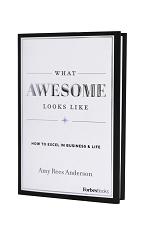Today and tomorrow I am attending the BYU Wheatley Institution, Ethics & Integrity Advisory Council meeting. I have just been asked to be the Co-Chair with four star General Robert C. Oaks who is also a former General Authority for The Church of Jesus Christ Of Latter-day Saints. Teaching and promoting Integrity and Ethics in business and life to our young people is of tantamount importance so how could I possibly say no to co-Chairing. And working with Elder Oaks, Brad Agle, Dean Madrian, and the rest of this board is a privilege and an honor. Because I am tied up I asked my son to cover my blog last night and my daughter to cover my blog tonight. My daughter Ashley could not have chosen a more fitting topic than the one she chose to write about tonight to share with all of you:
You Lose When You Cheat To Win (by Ashley Anderson Hill)
Recently in one of my college classes, we played a fun game with the intent to learn some simple principles about the beginning stages of starting a company. The game involved making small trinkets (origami paper boxes out of 2 sticky notes containing anywhere from 1-3 chocolate candy balls). There were four different colors of sticky notes and three different flavors of chocolate candy balls. The two halves of the origami box could be different colors or the same, top and bottom. Each sticky note used to build an origami box (taking 2 sticky notes) was $1,000,000. The origami boxes could contain anywhere between 1-3 balls with 3 different combinations of colors. If you’ve been doing the math, that’s 144 different completed combinations of trinkets. The previously determined winning combo (kept secret by my professor) was worth $10,000,000 in air money. Confused yet? That’s alright. Luckily you won’t have to fully understand the game to understand the outcome.
Each combination is worth a different amount of money. Our professor acted as “the market”, and as all good entrepreneurs know, the market determines the value of your product, and over time, the market changes. Each team used different strategies (asking “the market” as many questions before building trinkets, building trinkets from the beginning and taking those to “the market” to sell, waiting for other teams to figure out the winning combo and copying that, etc.) The goal of the game was to make as much profit as we could within “6 years” or 6 ten-minute rounds by selling trinkets to my professor.
About half way through the game all the teams became really antsy, as it was clear nobody had figured out the winning combo. We were all in an insane amount of debt from using the incorrect color of sticky notes. This is when different teams started to look around the room at what other teams were doing. One kid from another group approached our team and told us that they found the WINNING COMBO. He said he’d “sell” it to us for $50,000,000. After a team huddle, we decided against it.
Come the end of the game only ONE of the teams made a profit… and it wasn’t ours. L Instead, it was the team with the kid who told us they had the winning combo. But then our professor announced that NOBODY had figured out the winning combo. Wait… what…? Did you read that correctly? Yes. The kid lied to us, AND won the game. Can you guess how our team felt? To say the least there were comments shared amongst our group like, “Well I’ll never trust that guy,” and “I’ll never do business with him in real life.”
So, what’s the lesson to be learned here? Sometimes cheaters DO win. Often, actually. But when you look at the whole picture… they actually lose. By doing something as small as lying in a game, he lost potential opportunities and partnerships with the students in our class. Everyone on our team (and I’m sure others who heard what happened) made the decision to never do business with that kid in real life. Because if you’re willing to cheat in a tiny game that doesn’t matter, you’ll be just as willing to cheat when there are millions of dollars on the line. NO dollar amount is worth your integrity.
~Ashley Anderson Hill (daughter of Amy Rees Anderson, author of “What AWESOME Looks Like: How To Excel In Business & Life” )


